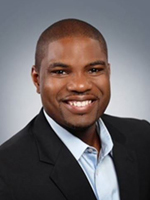
The Florida House PreK-12 Appropriations Subcommittee approved a committee bill that would require school districts to split their local property tax revenue with charter schools.
The bill passed with Republican backing and opposition from Democrats. The contentious debate delved into issues such as school choice and equitable funding.
A legislative staff analysis estimates the measure would raise about $147.9 million a year for charter schools, nearly double the $75 million that 556 charter schools currently share from the state budget.
The bill would create a stable funding source for charter schools, which would no longer rely solely on year-to-year appropriations. At the same time, it would avoid cutting into the money districts must set aside to pay off existing debt.
Rep. Manny Diaz, R-Hialeah, who explained the bill, said it would even the playing field so both charter and public school students receive closer to equal funding.
The bill drew concerns from some school districts, whose representatives said their construction budgets are spread thin.
Wendy Dodge, legislative affairs director for Polk County schools, said her district is relatively large, with 29 charter schools. But it has lots of rural areas. After setting aside $17.5 million for debt service, the district has about $27.5 to pay for repairs of its existing buildings. It has hundreds of millions worth of identified needs.
“We just don’t see the equity that is supposed to be in this proposal,” she said.
In some cases, the state appeals process allows charter schools to open in districts despite opposition from the local school board, Dodge said. And school districts face more stringent state regulation of their facilities.
“If this is the direction that you would like to go in, then we would say that public school facilities in the state need to be completely deregulated,” she said. “There’s no reason why my elected school board should go to the state and ask for permission to spend money on facilities when a well-meaning charter school can build wherever, and do whatever, they like.”
Rep. Byron Donalds, R-Naples, helped found Mason Classical Academy, a charter school in Collier County. The coastal district has one of the most lucrative property tax bases in Florida, but he said it still doesn’t share the revenue with charter schools.
“It is unfathomable to me that we tax local citizens in every county in this state for the capital facilities for the public schools, but because a parent makes an affirmative decision to take their child to a charter school, we say, ‘You don’t have access to that money anymore,’” he said. “That’s unfathomable to me.”
Donalds continued: “We fund the education of children. That’s why we tax our citizens. We fund the education of children, not educational bureaucracy, not buildings, but children.”
Even so, Democratic representatives Larry Lee, D-Port St. Lucie, Roy Hardemon, D-Miami and Wengay Newton, D-St. Petersburg, took exception to the bill.
“I believe in educational opportunities for all kids,” said Newton. “I think educational opportunities are great, but I don’t want to suffice one for the other. To me, I think what they ought to do is find a different funding source or give [charter schools] taxing authority.”
Hardemon agreed.
“The public school monies were meant for the general public schools,” he said. “And how we keep mixing it up and putting our children in the middle of it is puzzling to me. It is taking away from what we consider public schools and what the law considered public schools.”


